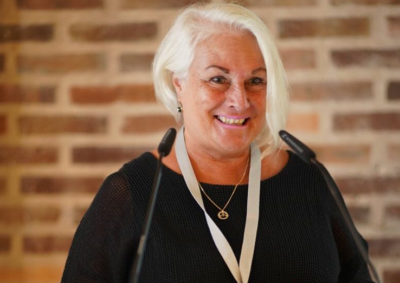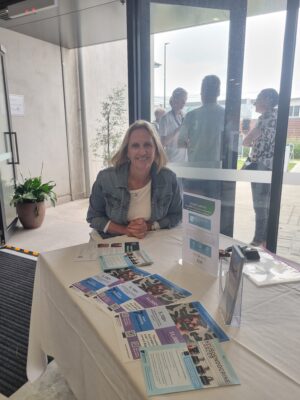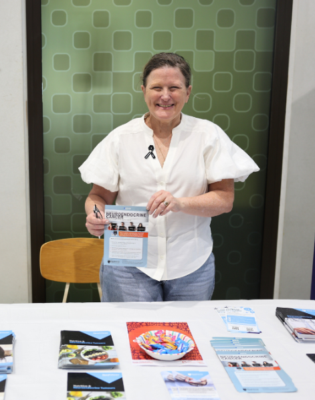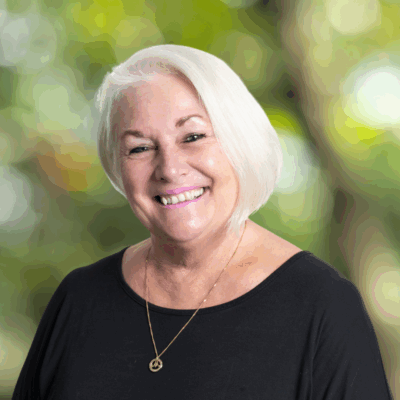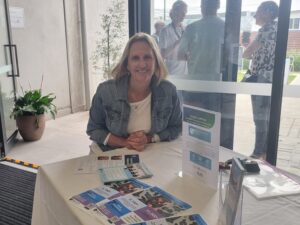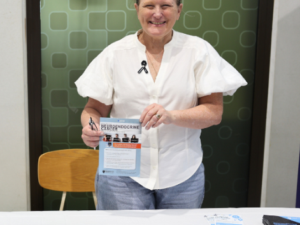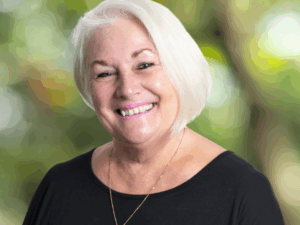On 30 October, NeuroEndocrine Cancer Australia (NECA) hosted a powerful event at Parliament House, Canberra, bringing together parliamentarians, clinicians, patient advocates, and industry leaders to discuss progress following the Senate Inquiry into equitable access to diagnosis and treatment for rare and less common cancers. Hosted by NECA Ambassador Michael Usher, the panel discussion featured NECA CEO Meredith Cummins, Senator Wendy Askew, Professor Stephen Clarke OAM (Medical Oncologist, Royal North Shore Hospital), Liz de Somer (CEO, Medicines Australia), and patient advocates Lauren Raynor and Therese Townsend.
Assistant Minister for Health and Aged Care, Rebecca White, delivered an opening address acknowledging the government’s commitment to implementing the Inquiry’s recommendations and improving equitable access to cancer care across Australia.
Government Commitment and Progress
Assistant Minister for Health and Aged Care opened the session, reaffirming the Federal Government’s support for 31 of the 41 recommendations from the Senate Inquiry, with several others under active consideration. The Minister outlined major investments into cancer care, including:
- $143 million to expand precision medicine programs
- $31 million for free comprehensive genomic profiling for patients with advanced cancers
- $110 million to grow Australia’s Zero Childhood Cancer program
- Funding for the Cancer Nurse and Navigation Program, with 100 new nurses to be recruited by 2027, including positions dedicated to rare cancers and Neuroendocrine Tumours (NETs)
The Case for Change
NECA CEO Meredith Cummins highlighted that neuroendocrine cancer is the 7th most common cancer in Australia, not a rare disease, yet remains chronically underfunded.
She noted that:
- Around 31,380 Australians are living with NETs, with 5,719 new diagnoses each year
- 1 in 2 patients are misdiagnosed initially
- 60% are diagnosed at Stage 4 when the disease is incurable
- Average diagnostic delay remains five years
Meredith emphasised the urgent need for:
- Dedicated NET specialist nurses in every state and territory
- Greater investment in NET-specific research
- Expansion of Medicare and PBS listings for diagnostic scans and treatments
- A national ban on genetic discrimination in life insurance
Patient Voices
Patient advocates Lauren Raynor and Therese Townsend shared deeply personal experiences of delayed diagnosis, limited treatment options, and the high financial burden of seeking care interstate and overseas. Their stories underscored the need for:
- Faster access to genomic testing and clinical trials
- Broader PBS coverage for advanced therapies
- Better recognition of hereditary NET syndromes and insurance protections for affected families
Expert and Policy Insights
Health policy experts and clinicians, including Prof. Stephen Clarke and Liz de Somer, discussed barriers to access and reform, calling for:
- Implementation of the HTA Review recommendations to accelerate treatment availability
- Improved national data sharing and trial coordination
- Consistent multidisciplinary team care for NET patients
- Sustainable funding for patient support and advocacy programs
Parliamentary Support
Senator Wendy Askew, who helped initiate the Senate Inquiry, addressed the room, reaffirming her commitment to keeping rare and less common cancers on the national agenda and ensuring the Inquiry’s recommendations are acted upon.
A United Message
The event concluded with a united call for continued collaboration between government, clinicians, patients, and advocates to close the equity gap in cancer care.
NECA CEO Meredith Cummins summed up the message simply and powerfully:
“this isn’t about rarity, it’s about equity. Every Australian deserves timely diagnosis, expert care, and access to life-changing treatment, no matter where they live.”

